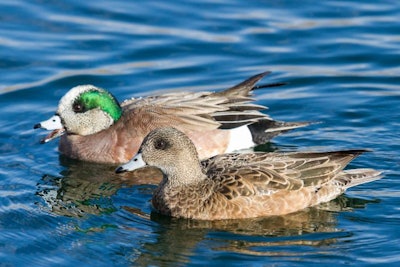
The presence of highly pathogenic avian influenza (HPAI) has been confirmed in South Carolina – the first case of HPAI in the United States in 2022 and since 2020.
According to a press release from the United States Department of Agriculture’s (USDA) Animal and Plant Health Inspection Service (APHIS), a strain of highly pathogenic Eurasian H5 avian influenza was found in a wild American wigeon in Colleton County, South Carolina.
Eurasian H5 HPAI has not been detected in a wild bird in the United States since 2016.
The last case of avian influenza to be reported by animal health agencies in the U.S. occurred in a commercial turkey flock in Kandiyohi County, Minnesota, in November 2021. However, that was a low pathogenic strain.
Prior to that outbreak in Minnesota, the last confirmed case of avian influenza in the U.S. also occurred in South Carolina. In that case, the presence of H7N3 HPAI was detected in a commercial flock of turkeys in Chesterfield County. That strain of avian influenza was of a North American lineage.
Elsewhere in North America, animal health authorities in Canada have reported two cases of HPAI on farms in the Avalon Province of Newfoundland and Labrador. The first case occurred at an exhibition farm in December, while the second was discovered in backyard chicken and duck flocks earlier this month. There were also reports of wild birds in the city of St. John’s that had been infected.
APHIS recommends that anyone involved with poultry production from the small backyard to the large commercial producer should review their biosecurity activities to assure the health of their birds. The agency also cautions that because wild birds can be infected with these viruses without appearing sick, people should minimize direct contact with wild birds.
View our continuing coverage of the global avian influenza situation.


















